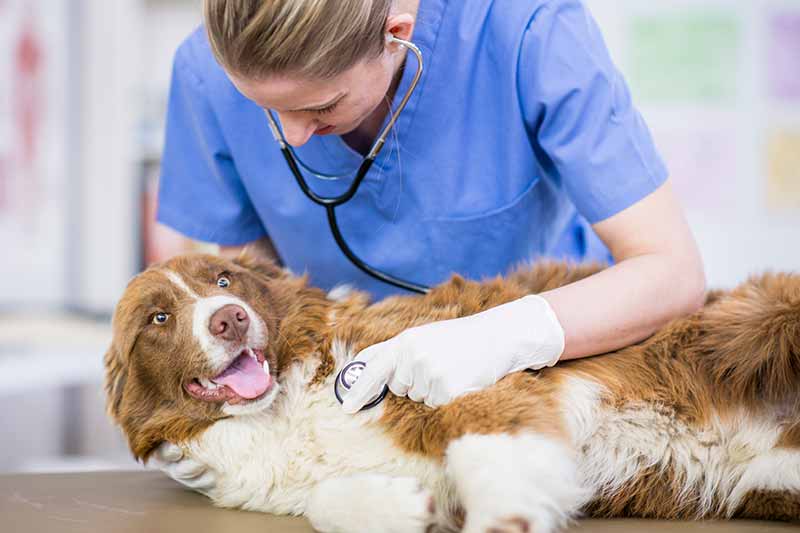How Veterinarian Greensburg Is Raising the Standard for Animal Healthcare
How Veterinarian Greensburg Is Raising the Standard for Animal Healthcare
Blog Article
Expert Tips for Family Pet Nutrition From a Veterinarian
Recognizing the nutritional needs of pets is important for their overall health and longevity. Vets advise a balanced diet plan that satisfies specific variables such as activity, type, and age degree. With the plethora of pet dog food options readily available, pet owners often locate themselves navigating a landscape raging with false information and misconceptions. As we discover crucial pointers from veterinary experts, it becomes obvious that appropriate nourishment is not simply about what is fed but entails a much deeper understanding of each family pet's one-of-a-kind needs. What key insights could transform your method to family pet nourishment?
Recognizing Nutritional Demands
Comprehending the dietary needs of pets is fundamental to ensuring their overall health and wellness. Similar to human beings, animals require a balanced diet plan that offers crucial nutrients, consisting of healthy proteins, fats, vitamins, carbohydrates, and minerals. These nutrients play essential roles in various bodily features, such as energy manufacturing, immune response, and cells repair work.
Proteins are crucial for growth, fixing, and maintenance of body cells - Animal Hospital Greensburg. They are composed of amino acids, several of which are vital and have to be gotten from food. Fats give a concentrated resource of energy and are important for the absorption of fat-soluble vitamins. When they consist of fiber., carbs serve as a key power source and can support digestion health.
Minerals and vitamins are necessary for metabolic processes and maintaining total wellness. Each pet dog may have special requirements based on variables such as age, breed, activity degree, and health standing. It is important to speak with a vet to determine the details nutritional needs tailored to your family pet's private needs, ensuring they obtain optimal nutrition throughout their life stages. Appropriate understanding and interest to these nutritional components can substantially add to a pet's long life and lifestyle.

Selecting the Right Food
Picking the proper food for pet dogs is a crucial aspect of satisfying their nutritional demands. It is necessary to consider aspects such as age, dimension, wellness, and type condition when picking a pet dog food. Kittens and pups require solutions that support development and growth, while adult family pets need balanced diet plans that maintain their health and wellness. Elderly animals might take advantage of foods developed to attend to age-related concerns, such as joint wellness or weight administration.
When assessing family pet food alternatives, seek items that fulfill the Association of American Feed Control Officials (AAFCO) criteria, which make sure that the food offers balanced and total nourishment. Ingredients should be high-grade, with real meat as the main source of healthy protein. Avoid foods with too much fillers, fabricated ingredients, or byproducts, as these can diminish the general nutritional value.
Consulting with a veterinarian can offer tailored referrals based on your family pet's certain needs. In addition, transitioning between foods ought to be done gradually to avoid intestinal trouble. By taking these steps, animal owners can make sure that they are giving their fuzzy companions with the finest possible nourishment for a healthy and balanced and read what he said delighted life.
Common Myths About Pet Food
Debunking false impressions bordering pet food is crucial for guaranteeing optimal nourishment for our furry buddies. One prevalent misconception is that all grain-free diet regimens are superior for pets. In truth, grains can offer vital nutrients and are not naturally hazardous. A balanced diet regimen can include grains, supplied they are not creating any type of allergic reactions or intolerances.

Additionally, several family pet redirected here proprietors think that "costs" or "natural" tags guarantee higher top quality. These terms are frequently unregulated and do not necessarily suggest remarkable dietary value. It is important to scrutinize ingredient checklists and dietary profiles instead.
Special Factors To Consider for Different Breeds
When it involves pet nutrition, special considerations must be considered for various breeds, as each breed can have unique nutritional demands and sensitivities. As an example, large breeds such as Excellent Danes and Saint Bernards are vulnerable to bone and joint concerns and might take advantage of diet plans created to sustain joint health and wellness, commonly including active ingredients like glucosamine and omega fats. Conversely, little types like Chihuahuas may require higher calorie thickness to fulfill their power levels, demanding formulas that are rich in nutrients yet reduced in mass.
Additionally, specific types might be inclined to specific wellness issues, such as food allergic reactions or sensitivities. Breeds like Labrador Retrievers may have problem with obesity, calling for cautious section control and a balanced diet regimen to preserve a healthy and balanced weight. On the various other hand, types such as Dachshunds might be more at risk to spine concerns, triggering a requirement for diets that advertise spinal health and weight management.
Ultimately, comprehending these breed-specific dietary requirements is critical for pet owners. Consulting with a veterinarian can help in selecting one of the most ideal diet customized to a specific family pet's breed, age, and health and wellness condition, making certain optimum nourishment and well-being.
Value of Regular Vet Exams
Understanding the unique nutritional requirements of different breeds is just one element of accountable family pet ownership; normal vet examinations play an essential role in preserving total health and wellness. These check-ups are necessary for early discovery of health and wellness issues, guaranteeing that any kind of potential issues are dealt with prior to they become serious. Routine sees enable vets to check your pet's weight, dental health, and vital indications, which are critical indications of total health.
In addition, regular examinations allow veterinarians to supply tailored nutritional advice based on your animal's individual health status - Vet Greensburg. As pets age, their nutritional needs may change, and adjustments might be required to stop obesity or nutrient deficiencies. Precautionary treatment, consisting of inoculations and parasite control, is additionally a fundamental part of these gos to, guarding your pet dog from different diseases
Along with physical exams, these consultations use a superb chance for pet owners to review behavior changes or problems about their pet dog's eating habits. By prioritizing normal vet check-ups, pet dog proprietors can make sure a much longer, much healthier life for their furry companions, eventually boosting their lifestyle.
Verdict
To conclude, ensuring optimum animal nourishment requires a comprehensive understanding of specific dietary needs, proper food option, and understanding of common myths. Unique considerations for different breeds have to be made up, and regular veterinary examinations play an important duty in monitoring wellness and nutritional adjustments. Sticking to AAFCO requirements and seeking advice from veterinarians before making dietary adjustments will improve the health of animals, inevitably contributing to their durability and lifestyle.
With the wide range of animal food options offered, pet owners commonly locate themselves navigating a landscape swarming with misinformation and myths. Each pet may have special demands based you could try these out on elements such as age, type, activity level, and wellness condition. It is necessary to consider elements such as age, health, size, and breed status when choosing a pet food. Elderly pet dogs might profit from foods designed to attend to age-related issues, such as joint health or weight monitoring.
Recognizing the one-of-a-kind dietary demands of various types is only one aspect of responsible pet dog ownership; regular vet exams play an essential function in preserving overall wellness.
Report this page